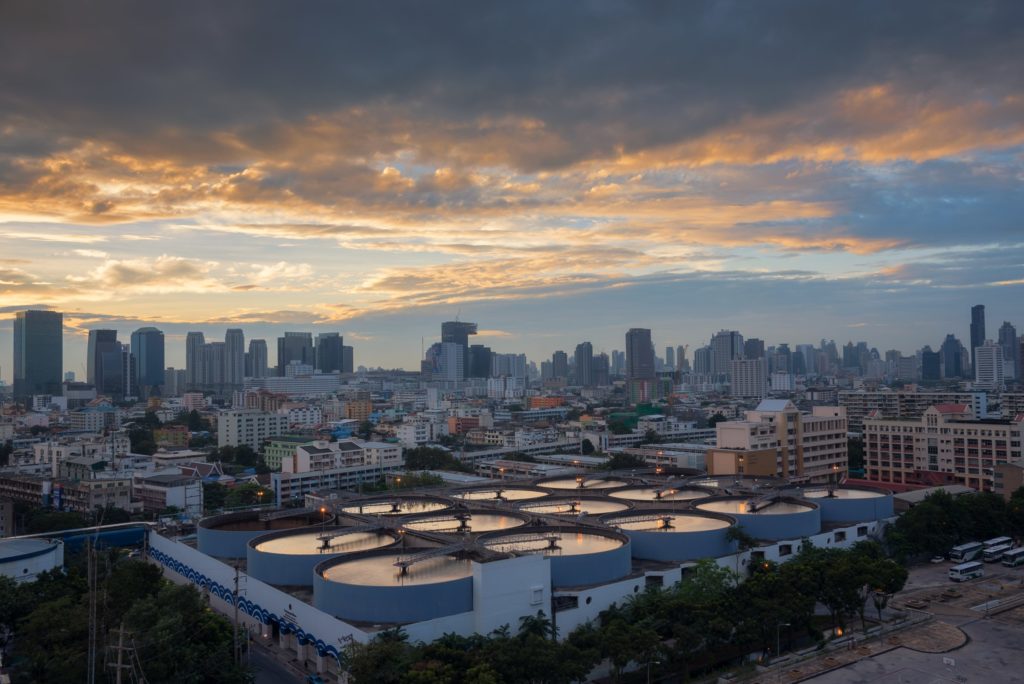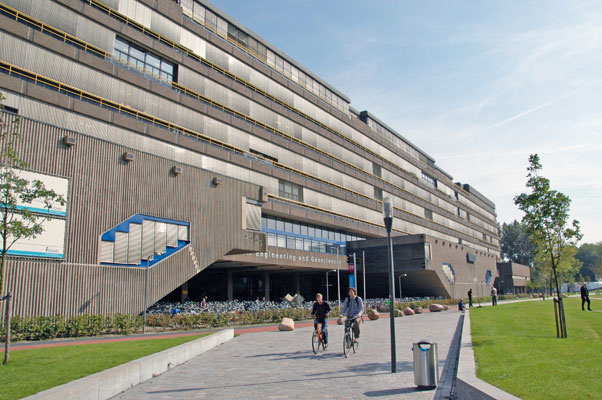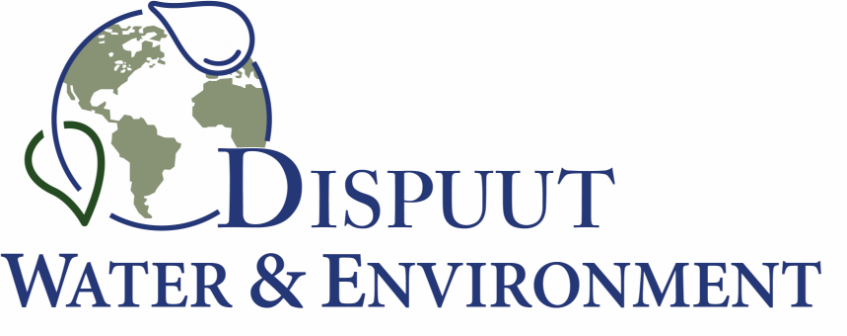Home » Watermanagement
Track: Watermanagement
From 2022: MSc Environmental Engineering substitutes the tracks Water Management and Environmental Engineering.
The TU Delft is planning to start this new, comprehensive master programme Environmental Engineering in September 2022. This will substitute the MSc tracks Water Management and Environmental Engineering from September 2022.
Information on the new master can be found on the MSc Environmental Engineering website. Here an elaboration can be found on the following topics:
- Programme,
- Research,
- Career prospects,
- Admission, Application & Finance,
- Related programmes,
- Study choise & events,
- Student Associations,
- Contact, Online courses (MOOC).
Please bear in mind that this Master Programme is subject to accreditation.


The Master Program is changing, how will that affect me? (for students who started before September 2022)
Click this link to see the courses discontinued in ’22-’23 due to master change (the last time a course is offered is shown in blue)
Goal of education part
The ‘Dispuut Water & Environment’ attaches large value to education. Therefore, our main goal is to keep and enforce the link between students and the department. We act as a representative of the students in decisions regarding organisation and education of the two masters: Water Management (WM) and Environmental Engineering (EE).
Both of our masters have their own commissioner of education. They are the first contact person of students and teachers in case of educational related comments and questions. Additionally they are responsible for the evaluation of courses and communication of the results with lecturers and the Department.
One of the commissioners also represents the Dispuut in the Board of Studies (BoS), an university organ which safeguards the quality of the programmes and is the sounding board for the study programmes at the faculty. It has the right of approval on parts of the programmes and is therefore important for (major) changes in the master programs.
The Watermanagement MSc-track offers the following 3 specialisations:
Hydrology
Water Resource Management
Urban Water Engineering
Hydrology focuses on the occurrence, distribution, movement and properties of the water on Earth and their relationship with the environment. You will learn how to measure, model and predict floods and droughts, precipitation and evaporation processes, and groundwater levels and flows.
Water Resources Engineering focuses on the control and use of water flows. This comprises irrigation systems, polders, urban areas and entire river basins. You will learn how to model these systems, how they are currently managed, and how their management can be improved. This requires technical as well as ‘soft’ skills.
Urban Water Engineering concentrates on water management in urban areas. Issues studied include urban design and asset management, urban flooding, urban groundwater problems, and the design, management and operation of sewers. Moreover, you will learn the basics of drinking water production and sewage treatment.
Response Group
The Dispuut is convinced that feedback is indispensable to keep and increase the quality of education. Since the TU Delft evaluate courses only once every five years, the response groups are initiated to provide annual feedback to course coordinators. In this way course can be improved during the period itself or for the upcoming education year. Especially in the fast changing fields of Water Management and Environmental Engineering this has proven to be valuable.
Each year, a new response group is created with supervision of the commissioner of education for the specific master. Both the WM and the EE response groups meet up two times each quarter. Feedback is collected on feedback forms and discussed with lectures to see in which way feedback can be incorporated in the course.
If you have any feedback, comments or would like to participate in one of the response groups. Please do not hesitate to contact us.
Christine Martin
Commissioner of education WM
Dispuut-we-CITG@tudelft.nl
MSc. Graduation
Your master study will conclude with your graduation, taking place when the diploma is handed to you by your assessment committee after a successful thesis defence. A defence can only take place if you have fulfilled all other requirements, most important successfully completed a study programme according to the regulations.
Therefore Student affairs (SPA) and your Master Coordinator of your track need to be informed of your intention to graduate. The procedure for that, through a number of forms, is described in a checklist for graduation.
The checklists you can find on the Water Management website https://www.tudelft.nl/en/ceg/about-faculty/departments/watermanagement/education/master/msc-thesis-water-management/
Which checklist to use depends on the track or section you belong to. For the tracks we distinguish between Water Management and Environmental Engineering. Then there is a separate checklist for students that fall under the section Sanitary Engineering or the section Water Resources. Under which section you fall depends on the chairperson of your assessment committee. The chairperson of your committee or the master coordinator can inform you when in doubt.
The same website also gives:
1) A guide on how to do the graduation work at the department (Guide for graduation work at Water Management)
2) An application form for the master defence (Application form master defence)
For more information have a look at the presentation about starting/doing a Msc Thesis & the general procedures.
If you need more help you can contact the following thesis coordinator:
Erik Mostert (Water Management)
Room: CEG 4.82
Phone: +31 15 27 87800
E-mail: e.mostert@tudelft.nl
Ainoa - Urban Water Engineering
My name is Ainoa and after having completed a bachelor in Civil Engineering at the TU Delft I went on to do my masters in Watermanagement. I am now in my second year and doing the track of Urban Watermanagement. My passion for water was developed at a young age when I learnt how vital water was for human life and how diverse sanitation conditions are around the world. Having lived in The Netherlands all my life, it only occurred to me after visiting other countries how well the Dutch manage their water and how integrated it is into the landscape and social lives.
The courses about sanitation are nicely balanced to facilitate theoretical understanding of treatment processes but also to teach application of treatment techniques. For example, last year we had to fully design a drinking water treatment plant for one of the courses. It was a great way to use the knowledge we had learnt and gain expertise of how this is applied in practice on large scale. The master programme provides space for experiences abroad; in November I will travel to Japan to do research for a multidisciplinary project about tsunami resilient cities. Furthermore, I am planning on doing an internship to acquire some work experience and help me take a decision in which field I want to do my thesis in: drinking water, wastewater or industry water.

Jeroen - Hydrology & Water Resources
My name is Jeroen Schoester, 24 years old. Currently I’m in my second year of the master water management. I started the master after finishing the bachelor of civil engineering at the TU Delft. During the bachelor I was a typical student in my first couple of years: Do the bare minimum to still get a passing grade. However, starting the master, it became very clear that this kind of attitude was not going to get me far. The master, although I did not find it as difficult as I expected it to be, has a high work load. So, going from on average 25 hours a week to 40 hours a week was quite the transition. However, it is important for yourself to be motivated and enthusiastic. You can choose your own courses. Personally, I found it very interesting to look at the urban hydrology. How can we improve data gathering or how can we interpret the data? Making cities more resilient or robust.
In your second year there are many exciting opportunities to get close to companies you might work for in the future in the form of an additional thesis’, internships, Multi-Disciplinary Projects (MDP) and of course your graduation work. I am going on a MDP to Thailand, which I am very excited for. However, the most important thing to take away for the master is this: You must create opportunities for yourself. You choose what you are going to do. The professors are there to help you in your choices, do not be afraid or nervous to talk to them about your interests. If you want to start and additional thesis, do an internship at a company or need a subject for your graduation, more likely than not, there will be multiple professors that can help you along.

